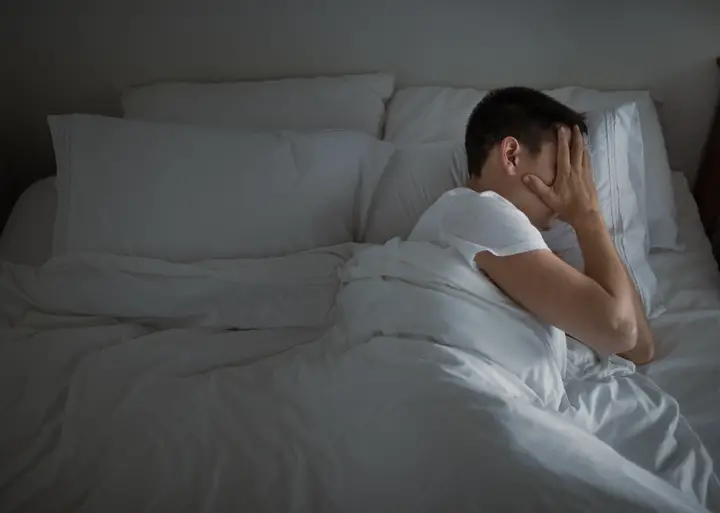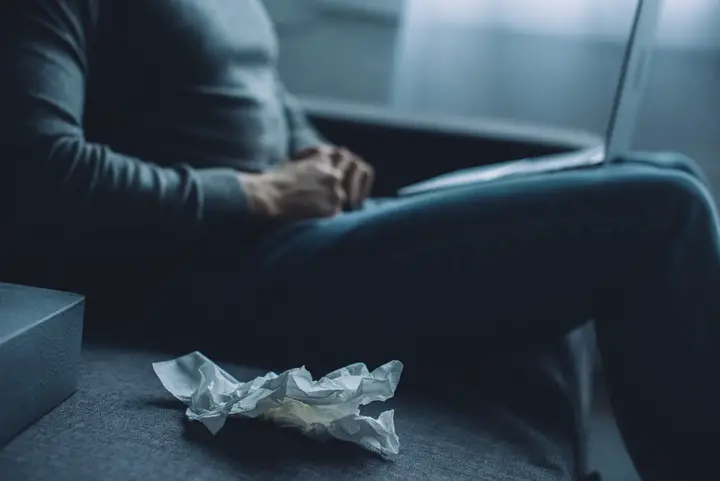
Credit: Adobe Stock
Scientists Officially Name And Give Reason Why People Feel Sad After M**turbating
There’s a surprising reason why people feel sad after pleasuring themselves, and scientists have named the condition.
Many people are surprised to discover they’re not alone in feeling unexpectedly sad, anxious, or irritable after m**turbation or consensual intercourse.
In fact, studies show that between 40% to 60% of s**ually active individuals will experience this emotional downturn at least once in their lives.
This reaction, often dismissed or misunderstood, now has a recognized name: postcoital dysphoria (PCD).

PCD refers to the emotional distress that some individuals feel following activity, even when the encounter was consensual and physically satisfying.
According to Psych Central, symptoms of PCD may include sadness, tearfulness, anxiety, agitation, irritability, or even intense emotional numbness.
These emotions can appear whether the person o**asms or not, and they are not limited to partnered s**, and solo m**turbation can also trigger them.
While the exact causes of PCD remain unclear, researchers and mental health experts believe it may stem from a variety of psychological, hormonal, and relational factors.
A history of trauma, unresolved emotional issues, or ongoing relationship dissatisfaction may all contribute.

As Dr. Sarah Melancon, a clinical s**ologist, explains (per Very Well Mind): “Postcoital dysphoria is when an individual feels strong negative feelings after consensual activity, which may include irritability, anxiety, agitation, sadness, depression, and crying spells lasting minutes to hours.”
Interestingly, this phenomenon isn’t new.
“This phenomenon has been observed throughout history, including by Greek writer Galen and philosopher Baruch Spinoza,” Dr. Melancon adds.
However, it has only recently been named and studied more rigorously.
There are also notable differences in how PCD manifests in men and women.
While studies suggest that up to 46% of women report experiencing it at some point, a 2019 study published in the Journal of S** & Marital Therapy found that 41% of men have also experienced postcoital dysphoria, though they may be more prone to feelings of aggression or irritability rather than sadness.

To manage PCD, experts recommend acknowledging and validating your emotions.
“Practice ‘being’ with your feelings,” advises Dr. Melancon.
Journaling, engaging in self-care routines, and open communication with partners can be helpful strategies.
For persistent or distressing symptoms, therapy is a recommended route, especially if PCD is linked to deeper emotional or relational concerns.
In short, while PCD can be unsettling, it’s more common than many realize.
Understanding that it’s a legitimate emotional response, and not a sign of weakness or dysfunction, can be a powerful first step toward healing and self-awareness.
Related Article: Single Man Almost M**turbates Himself To Death
Related Article: Urgent Warning Issued To Men Who Don’t Have S** Often
Want more stuff like this?
Get the best viral stories straight into your inbox!